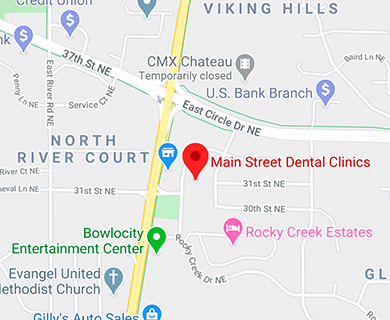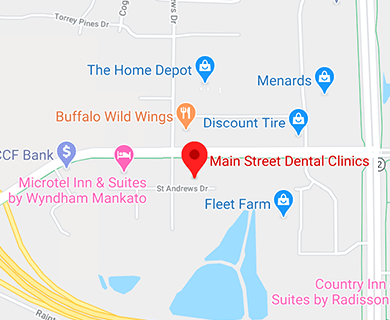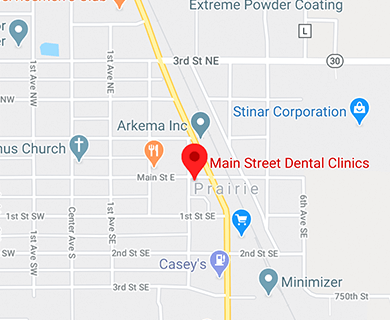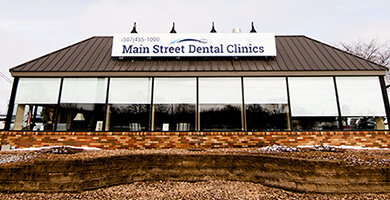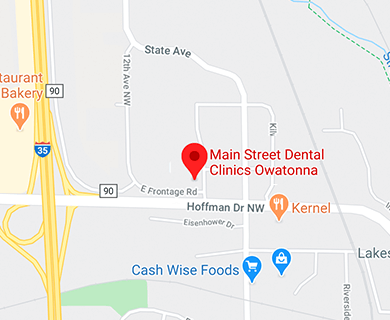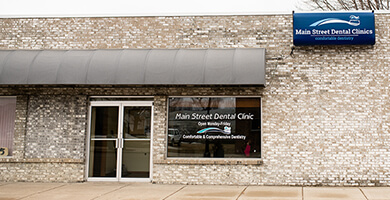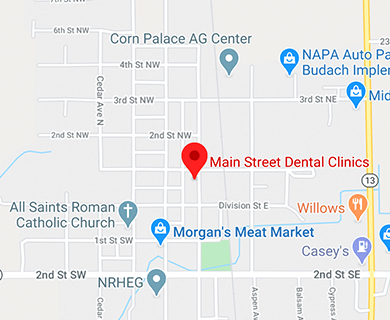The Connection Between Your Mouth and Your Heart
June 23rd, 2021

At Main Street Dental Clinics, we know your dental health is closely connected to your overall health. We also know that the mouth can oftentimes be the first place to show signs of other bodily health issues.
Studies have shown possible links between periodontal (gum) disease and heart disease, and researchers have found that people with gum disease have an elevated risk of suffering from a stroke or developing coronary artery disease. Believe it or not, an estimated 70 to 80 percent of North American adults currently have some form of gum disease.
Gum disease, which affects the tissues that surround and support the teeth, is an infection caused by a sticky film of bacteria called plaque that forms on the teeth, mainly along the gum line. In its early stages, called gingivitis, gum disease can be treated by Drs. Osman Swedeh, Chris Stenzel, Dan Schafer, Jeff Campbell, Chad Hanson, Brian Burmeister, Bob Kess, or Jon Fabian and often reversed.
To help keep your mouth and heart healthy, we’ve provided following tips to help prevent problems before they arise:
- Brush your teeth with fluoride toothpaste at least twice a day. Make sure you brush gently beneath the gum line around each tooth.
- Floss at least once a day.
- Have a dental checkup and cleaning twice a year, or as recommended.
- Eat a healthy diet. This includes avoiding foods with a high concentration of sugars or starches and consuming more fruits and vegetables.
- Avoid tobacco and copious levels of alcohol. If you smoke, quit. And remember, heavy drinking dramatically increases the risk of developing mouth and throat cancer.
Don’t put off your next visit to Main Street Dental Clinics any longer! If it has been a while since your last visit to our Rochester office, please give us a call!






